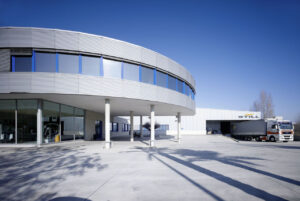- 2 June, 2022
- -
- Web Editor
- -
- Architects Barcelona, Architecture, Wortmann Architects arts
- -
- 0 comment

Transformational Architecture – The architecture of change
The term itself is surprising and raises questions. What is meant here?
Architecture, buildings that are the result, witnesses, and at the same time actors of social upheaval? Or buildings as agents of transformation, in this case of their environment as well as the living conditions of their inhabitants?

Architecture is, per se, anchored in its time and place. At the same time, it changes its surroundings, creates facts, circumstances, effects in many ways, for an indefinite time or even permanently. But let us not deceive ourselves. Wether as a witness or a perpetrator, being involved is never neutral or innocent. There is no such thing as uninvolved architecture. Whoever builds takes a stand, puts in order or disturbs, speaks the truth or lies, flies the flag, or turns his flag to the wind.
“We don’t want buildings that tell stories they haven’t experienced.”
Architecture accompanies us. It is constant, immovable, steady, but never indifferent. Architecture embodies principles, has an effect, creates reality. If it is a mere gesture, it runs the risk of being ridiculous, or in the worst case, pretentious.
Back to the starting point: the architecture of change also transforms.
Architecture must take a stand about its time, its users, even its predecessors if it wants to be valid in the present and beyond.
It can only be homeland and confer identity, not giving you the answer to the essential questions about you: where do I belong and how I want to live.
It is not the celebrated façade that speaks to us, but the countenance, even with closed lips. If it is truly authentic, it conveys rank and personality, sometimes even beauty. Buildings show themselves on the outside through their façade, their face. This must be the expression of a formed individual, the shape, the essence. If it lies, if it only pretends, then it becomes a grimace. It is not about pleasing, but about being. Accordingly, an architecture of transformation is always also an architecture of responsibility.
Johannes K. Wortmann
